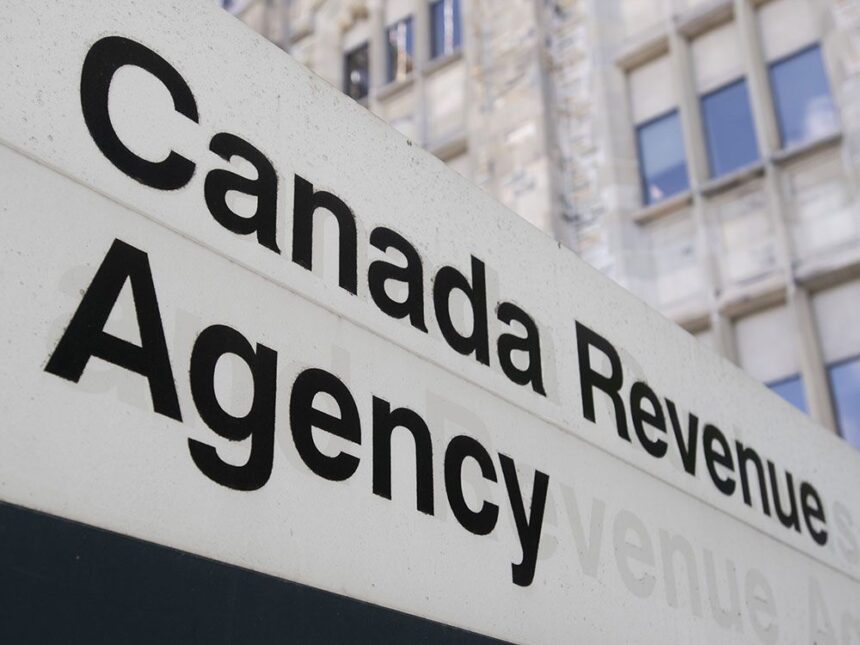In an unprecedented move sending shockwaves through Canada’s digital economy, the Canada Revenue Agency has firmly closed the door on refund requests for the now-defunct Digital Services Tax (DST), despite Parliament’s formal repeal of the controversial measure earlier this year.
“We’ve been caught in bureaucratic limbo,” explains Michael Riordan, CEO of CanTech Solutions, a mid-sized technology firm based in Vancouver. “The government acknowledged the tax was fundamentally flawed, repealed it, yet the CRA maintains we aren’t entitled to refunds for amounts collected under legislation that no longer exists.”
The Digital Services Tax, initially implemented as part of Canada’s strategy to capture revenue from foreign digital giants operating within Canadian borders, was repealed following intense pressure from industry stakeholders and international trade partners. The tax had imposed a 3% levy on revenues generated through digital platforms with Canadian users, affecting both domestic and international technology companies.
Internal CRA documents obtained through Access to Information requests reveal the agency’s position that the “legislative repeal does not automatically trigger refund eligibility” for taxes already collected. This stance has left many companies who dutifully complied with the short-lived tax feeling betrayed by the very system they trusted.
Financial analysts from Toronto’s Bay Street estimate that approximately $420 million in DST payments remain in government coffers with no path to reimbursement under current policy. The majority of affected businesses include advertising platforms, subscription services, and digital marketplaces that had restructured their Canadian operations to accommodate the tax.
“This creates a dangerous precedent,” warns Patricia Yuen, tax policy specialist with the Canadian Chamber of Commerce. “If businesses cannot trust that compliance with current law protects them when that law is later deemed inappropriate and repealed, we undermine the entire foundation of our tax system.”
The situation has sparked intense debate in Canadian political circles, with opposition finance critics calling for immediate intervention. Conservative MP James Richardson has demanded clarity from the Finance Minister, stating during Question Period that “Canadian businesses deserve certainty, not retroactive punishment for following laws that government itself has rejected.”
Legal experts suggest affected companies may have grounds for a class action lawsuit. “The fundamental principle at stake is whether the government can retain funds collected under legislation it has subsequently determined was flawed enough to warrant repeal,” explains constitutional law professor Danielle Montour from McGill University.
For smaller Canadian tech firms like Toronto-based DataStream Analytics, the financial implications are substantial. “We paid nearly $180,000 in DST during its brief existence,” reveals company founder Aiden Chow. “That’s capital that could be reinvested in hiring Canadian talent or developing new products, but instead sits locked in government accounts despite the tax being repealed.”
The Finance Department has issued a statement indicating they are “reviewing the situation” but stopped short of committing to any refund mechanism. Sources within the department, speaking on condition of anonymity, suggest the reluctance stems from concerns about the administrative complexity of processing refunds and potential budget implications during a period of fiscal constraint.
International observers are watching closely. The European Union, which has its own digital taxation framework under development, has expressed concern about Canada’s approach. EU Digital Economy Commissioner Helena Bergstrom noted that “tax certainty and fairness are critical pillars of a functioning digital economy” and that “retroactive retention of repealed tax revenues undermines these principles.”
As this story develops across Canadian business centers, the fundamental question remains unresolved: When a government acknowledges a tax was misguided enough to warrant repeal, does it have a moral and legal obligation to refund amounts collected under that abandoned legislation?










